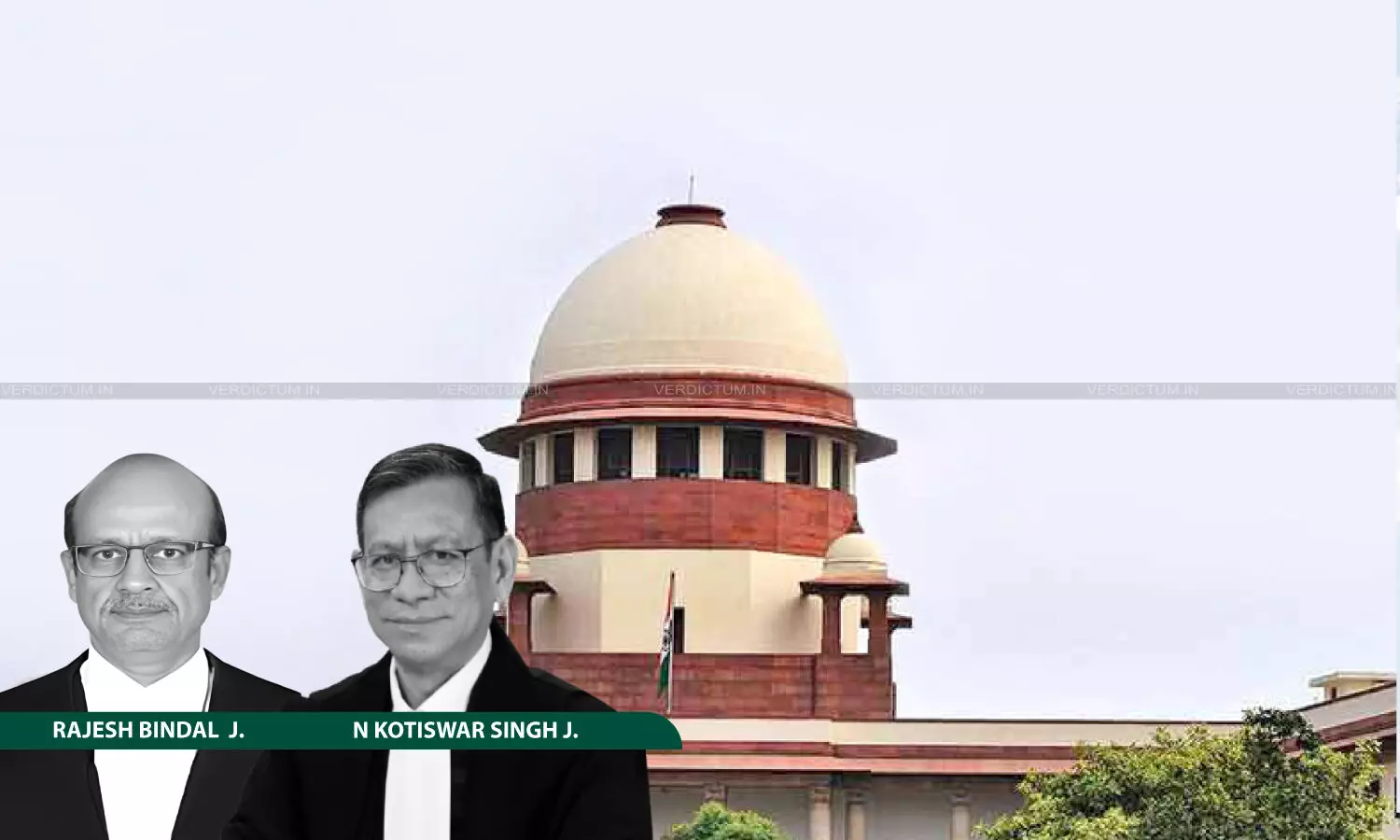
Justice Rajesh Bindal, Justice Nongmeikapam Kotiswar Singh, Supreme Court
Can’t Declare Gift Deed As Benami Transaction Merely Because Amendment Was Carried Out In WB Land Reforms Act With Retrospective Effect: Supreme Court
 |
|The appellants filed the appeal before the Supreme Court challenging the order of the Calcutta High Court in a Writ Petition relating to a land dispute.
The Supreme Court has upheld an order of the West Bengal Land Reforms and Tenancy Tribunal whereby the declaration of a gift deed executed in 1967 as a benami transaction was set aside. The Apex Court held that the genuineness of the registered gift could not be questioned only because an amendment was carried out in the West Bengal Land Reforms Act two decades later with retrospective effect.
The appellants filed the appeal challenging the order of the Calcutta High Court in a Writ Petition relating to a land dispute.
The Division Bench of Justice Rajesh Bindal and Justice Nongmeikapam Kotiswar Singh said, “The genuineness of the registered gift deed executed on 07.12.1967 could not be put in question two decades later only because an amendment had been carried out in 1989 with retrospective effect.”
“If that argument is to be accepted, then late Iswar Chandra Pal could have distributed his entire holding amongst his children and saved every inch of land. But the fact remains that even after gifting part of holding to his sons and daughters, still 8.80 6 acres of land in his hands was found to be surplus, which was declared as such and vested in the State”, it added.
Factual Background
One Iswar Chandra Pal had executed a registered gift deed in 1967 in favor of his sons and daughters. Vide the aforesaid Gift Deed, 20.88½ acres of land were transferred. The same was given effect to in the revenue records in 1969, and the land was transferred in the respective shares of the beneficiaries. Considering the balance land of the said Iswar Chandra Pal, the Government declared 8.80 acres of land as surplus area and took possession thereof. Pal died in the year 1975.
Subsequently, after the Amendments in the West Bengal Land Reforms Act, 1955, proceedings under Section 14T(3) read with Sections 14M & 14S were initiated to determine the surplus land. Vide an order dated June 16, 1997, passed by the Revenue Officer, the gift deed executed by late Iswar Chandra Pal in favour of his sons and daughters in 1967 was held to be a benami transaction. It was held that out of the total land area of 26.55 acres, the family of late Iswar Chandra Pal shall be entitled to get 8.65 acres of land in the non-irrigated area. Balance 17.9 acres of land was declared to be surplus.
Aggrieved against such an order passed by the Revenue Officer, the appellants preferred appeals before the Appellate Authority and the matter was remanded to the Revenue Officer, limited to the extent of selection of the area for retention of the land beyond the surplus area. The appellants’ appeal before the Tribunal was accepted, and the order of the Revenue Officer was set aside. The State’s Writ Petition was accepted by the High Court, and the matter was remitted. Aggrieved thereby, the appellant approached the Apex Court.
Arguments
It was the case of the appellants that the observation of the Revenue Officer, as prima facie accepted by the High Court was that the transaction of gift deed dated was a Benami transaction was erroneous as the amendment came into effect almost two decades after registered gift deed was executed.
Reasoning
The Bench, at the outset, said, “In our view, the facts of the case clearly suggest that the opinion prima facie expressed by the High Court that the transaction of execution of gift deed by Late Iswar Chandra Pal on 07.12.1967 seems to be Benami is erroneous on the face of it.”
Considering the fact that the aforesaid registered gift deed was given effect to in the revenue records in 1969, the Bench held that it would be absurd to accept the argument that such a transaction could be held to be Benami with reference to an amendment carried in the 1955 Act with effect from May 12,1989, as no one could dream that the land holding had to be distributed amongst the family members to avoid it being declared as surplus on a later date.
The Bench said that the High Court committed an error in setting aside the order passed by the Tribunal by remitting the case for examination afresh, as no two opinions could be formed based on the facts.
Thus, allowing the appeal, the Bench set aside the order of the High Court and restored the order of the Tribunal.
Cause Title: Sri Prasanta Kumar Pal & Ors. v. The State of West Bengal & Ors. (Neutral Citation: 2025 INSC 783)